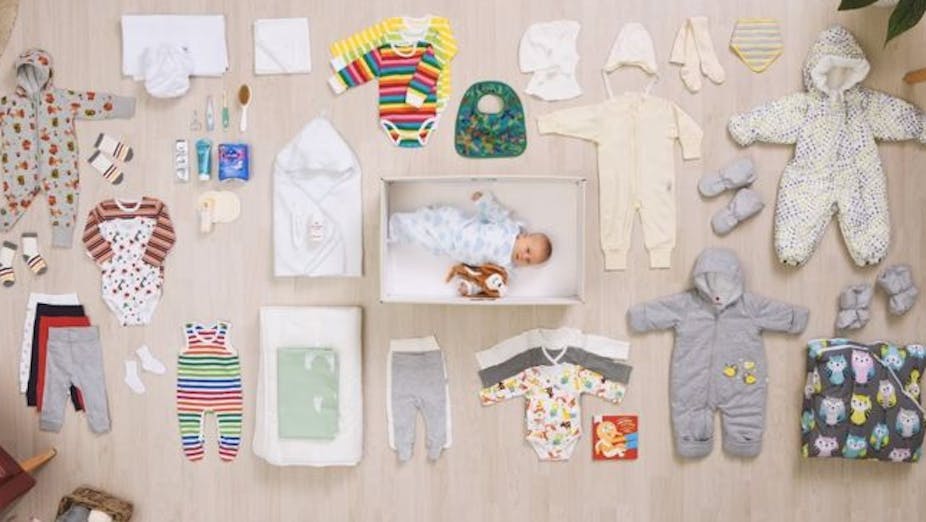Authors:
Debbie Watson, Professor in Child and Family Welfare, University of Bristol
Helen Ball, Professor of Anthropology and Director of the Parent-Infant Sleep Lab, Durham University
Jim Reid, Senior Lecturer, Department of Education and Community Studies, University of Huddersfield
Pete Blair, Professor of Epidemiology and Statistics, University of Bristol
 The baby box in Finland is embedded as part of the maternity system. Kela
The baby box in Finland is embedded as part of the maternity system. Kela
Having a baby can be expensive. So it’s maybe not surprising that many retailers around the world have cottoned on to the success of Finland’s baby boxes – a package aimed to set up new parents and their bundle of joy. The Finnish boxes include baby clothing, sleep items, hygiene products and a parenting guide –- as well as a “sleep space” for the baby.
Many retailers around the world are now offering similar boxes for expectant parents. Indeed, research conducted at the University of Tampere in Finland suggests there are variants in over 60 countries. This includes Scotland’s baby box scheme – with all newborn babies getting a free baby box from the Scottish government.
But as a group of child welfare experts, we believe imitations of the Finnish boxes could be placing babies at risk. This is because it has become common to believe that if babies sleep in these boxes, it will help protect them from sudden infant death syndrome (SIDS). Unfortunately, the research does not back this up. Continue reading


